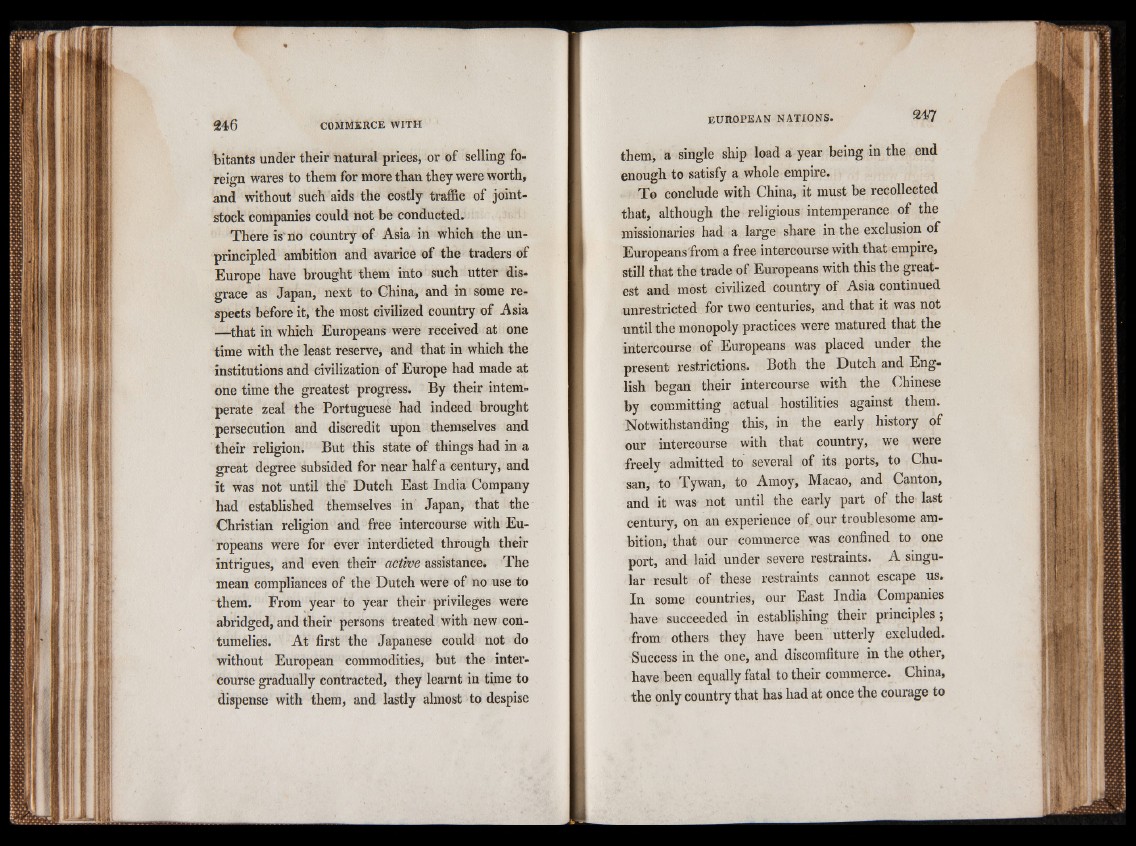
bitants under their natural prices, or of selling foreign
wares to them for more than they were worth,
and without such aids the costly traffic of joint-
stock companies could not be conducted.
There is no country of Asia in which the unprincipled
ambition and avarice of the traders of
Europe have brought them into such utter disgrace
as Japan, next to China, and in some respects
before it, the most civilized country of Asia
—that in which Europeans were received at one
time with the least reserve, and that in which the
institutions and civilization of Europe had made at
one time the greatest progress. By their intemperate
zeal the Portuguese had indeed brought
persecution and discredit upon themselves and
their religion. But this state of things had in a
great degree subsided for near half a century, and
it was not until the Dutch East India Company
had established themselves in Japan, that the
Christian religion and free intercourse with Europeans
were for ever interdicted through their
intrigues, and even their active assistance* The
mean compliances of the Dutch were of no use to
them. From year to year their privileges were
abridged, and their persons treated with new contumelies.
At first the Japanese could not do
without European commodities, but the intercourse
gradually contracted, they learnt in time to
dispense with them, and lastly almost to despise
EUROPEAN NATIONS. 247
them, a single ship load a year being in the end
enough to satisfy a whole empire.
To conclude with China, it must be recollected
that, although the religious intemperance of the
missionaries had a large share in the exclusion of
Europeans from a free intercourse with that empire,
still that the trade of Europeans with this the greatest
and most civilized country of Asia continued
unrestricted for two centuries, and that it was not
until the monopoly practices were matured that the
intercourse of Europeans was placed under the
present restrictions. Both the Dutch and English
began their intercourse with the Chinese
by committing actual hostilities against them.
Notwithstanding this, in the early history of
our intercourse with that country, we were
freely admitted to several of its ports, to Chu-
san, to Tywan, to Amoy, Macao, and Canton,
and it was not until the early part of the last
century, on an experience of. our troublesome ambition,
that our commerce was confined to one
port, and laid under severe restraints. A singular
result of these restraints cannot escape us.
In some countries, our East India Companies
have succeeded in establishing their principles;
from others they have been utterly excluded.
Success in the one, and discomfiture in the other,
have been equally fatal to their commerce. China,
the only country that has had at once the courage to